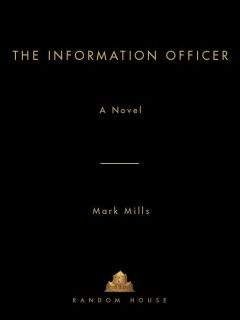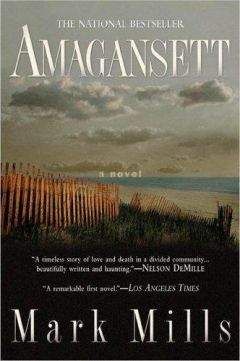Mark Mills - The Information Officer
На сайте mybooks.club вы можете бесплатно читать книги онлайн без регистрации, включая Mark Mills - The Information Officer. Жанр: Прочее издательство неизвестно,. Доступна полная версия книги с кратким содержанием для предварительного ознакомления, аннотацией (предисловием), рецензиями от других читателей и их экспертным мнением.
Кроме того, на сайте mybooks.club вы найдете множество новинок, которые стоит прочитать.

Mark Mills - The Information Officer краткое содержание
The Information Officer читать онлайн бесплатно
Max was impatient, eager to get to the relevant pages, but it was hard to remain immune to the tales of derring-do (and derring-don’t). Subs slithered into foreign harbors under the cloak of darkness to wreak happy havoc, apparently oblivious to their own meagre chances of escape. Others braved minefields to head off enemy convoys that might otherwise have eluded them. Wanklyn in the Upholder once went it alone against nine heavily armed ships and, in spite of a faulty gyrocompass that forced him to fire by sight from a choppy surface at night, bagged three before slipping away. The Porpoise, well known on Malta for ferrying crucial supplies and personnel to the island, had once survived eighty-seven depth charges during one of her “magic carpet” runs.
The stories were coming thick and fast, and Max was so absorbed in the swan song that he almost missed his moment.
Staying Tommy’s hand, he said, “Ah, the Upstanding. Lionel’s sub.”
“Hell of a man. Hell of a crew.”
“Where are they now?”
“Well, if Lionel has any sense, he’ll be lying in Mitzi’s arms.”
Max rose above the thought and even managed a small laugh. “And the crew?”
“Not here. We lost the mess decks last month to a parachute mine. They’re in syndicate flats in Sliema when they’re not on duty watch.”
Max ran his finger slowly down the page, pausing at the details of an engagement off Tripoli, but his eyes were elsewhere, scanning ahead.
February 17 and March 8: the dates he’d got from Freddie, the dates that marked the discovery of the two other dance hostesses, the ones who had died in circumstances suspicious enough for Freddie to have alerted the lieutenant governor’s office.
Max willed the Upstanding to have been on patrol, far away in the waters off Sardinia or some such place. But she’d been in port on both occasions, resting between sorties.
“Well?” said Tommy.
“Huh?”
He hadn’t been listening.
“Mitzi … When we’re gone … you’ll see she’s all right? Until she joins us in Alex, that is.”
“I have the feeling she’s quite capable of looking after herself.”
“Oh, she likes to cut a certain figure, but she’s not as tough as she makes out.”
“You think?”
“I know.”
Tommy seemed on the point of elaborating when the door creaked open behind them.
It was good to know that Lionel wasn’t curled up somewhere with Mitzi. It wasn’t quite so good to think of the flotilla’s log spread open on the desk at the pages relating to the Upstanding. Max shifted in his chair to obstruct Lionel’s view of it.
“Max, old man.”
“Lionel.”
Lionel turned his inquiring eyes to Tommy. “Cat out of the bag?”
“He knows.”
“Fair enough.” Lionel shrugged. “Can’t keep it secret forever, I suppose.”
He was a handsome man, blue-eyed and flaxen-haired, although his mustache was of a slightly darker tinge (and a touch too bushy to be taken seriously). He was not as tall as he would have liked to be. It annoyed him that he had never quite reached six feet, but he knew he was well proportioned, and he was proud of his long legs and narrow hips, both of which he believed made him appear taller than he was.
These were just some of the facts Max had learned from Mitzi about her husband. Max also knew that Lionel only ever made love in the dark; that he’d been circumcised; and that when he snored, he sounded not unlike a bullfrog. Max derived no pleasure from these insights; he would have preferred not to know. Anything that rendered Lionel more human also made it harder to look him in the eye.
Getting to his feet, Max calmly closed the log before turning back. “I don’t know what to say. It’s a sad day indeed. Have you told Mitzi?”
“Last night.”
“How did she take it?”
Tommy gave a dry little laugh. “What? Forced to leave a besieged island before it falls to the enemy?”
“Malta won’t fall,” Max found himself saying with a vehemence that surprised him.
Lionel ignored the statement. “Well, actually, she took it rather badly. What with her job and everything, she feels she’s doing her bit for the war effort.”
“I’m sure we can drum up some letter-writing for her in Alex.”
“That’s what I told her, though with slightly more tact.”
Max knew he had to smile along with them—anything less would have been too revealing—but he wanted to scream at them. Were they really so blind? Was that really how they saw her: the little woman troubling her head with the affairs of men? He knew what she did, and he knew she did it well because he had sometimes helped her with it when Lionel was away on patrol.
By any standards, it was a grim job. Unable to attend to their own affairs, dead RAF personnel required others to do the business on their behalf, and that duty fell to the Standing Committee of Adjustment. From their ground-floor offices on Scot Street, they sifted through the personal effects of the victims. Small objects of sentimental value were dispatched free of charge to the next of kin; bulkier items were either shipped home at the expense of the families or sold for the benefit of the RAF Benevolent Fund.
Mitzi was in charge of the correspondence. She read all the letters the casualties had received during their time on Malta, judging which of them to hold back. It wouldn’t do for a grieving widow to find a love note from another woman buried away in her dead husband’s mail. When she wasn’t preserving the memory of the dead, Mitzi was drafting the official letters that accompanied the personal effects back home. Most people would have dashed them off mechanically, but Mitzi worked hard to lend them a thoughtful and human touch, knowing that her words could make a difference.
“I’ve asked her to leave the flat in Valetta till she ships out to Alex. The Reynolds have said they’ll have her in Saint Julian’s.”
“Good idea,” said Tommy. “It’s a far safer place to be right now.”
“She’s dead against it, won’t listen to common sense.” Lionel turned to Max. “A word in her ear would be appreciated, old man.”
“Of course,” said Max.
Tommy and Lionel accompanied him back to his motorcycle, stopping to show him the stone wall on which Lord Byron had scratched his name while quarantined at the Lazaretto.
Tommy ran his finger over the sloping script.
“Adieu thou damnedst quarantine, / That gave me fever and the spleen,” he intoned, presumably quoting from one of Byron’s poems. “He didn’t like Malta.”
“And who can bloody blame him?” muttered Lionel.
Valetta was a welcome tonic after the desolation and destruction of the submarine base, which was saying something. In all its long history, the place had surely never looked worse. It had been almost a month since the opera house close by Kingsgate had received a direct hit, but its tumbled ruins still gave pause for thought. From here, it was a short walk down Kingsway to the shell of the Regent Theatre, where more than a hundred people had lost their lives on Carnival Sunday back in February during an afternoon showing of North West Mounted Police. Freddie, a devoted fan of Madeleine Carroll (and other ice-cool blondes in her mold) had dragged Max to see De-Mille’s curious and rather disappointing epic just the evening before. Several officers whom Max had known well enough to stand a drink for at the Union Club had not been so lucky with their timing.
Close brushes such as these brought to mind the grim words etched into one of the knights’ tombs in Saint John’s Co-Cathedral, remarkably undamaged still, a stone’s throw from the Regent: Hora Venit ejus, Veniet et tua. “Death came for them, and it shall come for you.” Maybe the Maltese had absorbed this stark truth with their mother’s milk, for they had an impressive capacity for carrying on regardless. Even now, they were buzzing about their business, moving with purpose, and Max found himself falling into step with the jittery rhythms of the street, a welcome antidote to the weary defeatism of the submariners. He had to hurry if he was going to make his appointment. Iris had been very clear with him on the phone: she wouldn’t hang around for him if he was late.
Iris was a civilian plotter with RAF Fighter Control in the Combined Operations Room. Sometimes referred to as “the Ops Room” but widely known as “the Hole,” it lay deep within the rock below the Upper Barraka Gardens. A rough-hewn tunnel led to an unprepossessing run of musty and malodorous rooms, and it was from this poorly ventilated little warren that the defense of Malta was coordinated. Max knew the place well from his many meetings with the air officer commanding, and although it was undoubtedly the safest spot to be on the entire island, it still brought out a claustrophobic streak in him.
As ever, a gaggle of off-duty pilots hovered near the entrance, waiting for the girls to come off their shifts.
“Shouldn’t you be up there mixing it with the enemy?” said Max as he pushed past them.
“Get us some bloody kites and we will,” replied one who’d failed to clock the irony in his words.
“Why didn’t you say? How many do you want?”
“A couple of hundred should see us good.”
“Consider it done,” Max replied, slipping inside.
“Bloody comedian,” came an Australian voice as the door swung shut behind him.
One feature of the Hole was the permanent babble of voices echoing off the hard walls, the low urgent hum of men and women engrossed in serious business. Even if the navy plotting room was silent, the wireless signals receiving room next door would invariably be alive with activity, or the antiaircraft gun operations next door to that, or coastal defense. Max passed through each in turn, exchanging brief greetings as he went.
Fighter Control was alive with activity, and Max took up a discreet position on the gallery with a couple of Maltese girls waiting to go on duty. Down in the pit, Iris and her colleagues buzzed around the plotting table, shifting small markers around with long poles according to the instructions they were receiving from the filter room through their headphones. There seemed to be some kind of plot building just north of the island.
From his vantage point high on the shelf, Group Captain “Woody” Woodhall, the senior fight controller, peered down on the proceedings. It was good that he was on duty: good for the pilots in the air, and good for Max, who always enjoyed watching the master at work. Woody was known for his uncanny ability to anticipate the enemy’s movements, and the pilots had developed a fanatical faith in his controlling. Max had often heard it said that even in a freezing cockpit at twenty-five thousand feet, you didn’t feel alone if Woody was on the other end of the line.
“Hello, Pinto Red Leader. This party is about ten miles north of you now, coming south.”
The voice helped: deep, measured, always reassuring.
“Thank you, Woody.”
“Keep your present angels and save your gravy.”
Woody exchanged a few words with the gunnery liaison officer seated beside him on the shelf. Down in the pit, Iris caught sight of Max and sketched a small wave in the air. The tense seconds ticked by. Then voices started to come over the public-address system.
“There they are!”
“Can’t see them.”
“Two o’clock below. Big jobs and a swarm of little boys.”
“Jeez.” Probably an American pilot.
“Still can’t see them. You lead, you lead.”
“Happy hunting, fellers.” Definitely an American.
“Do us a favor, Woody, and tell them to put the kettle on.”
“Milk and two sugars, right, Harry?”
“Just the one sugar. I’m watching my waistline.”
Woody laughed. “Well, don’t forget to watch your back too.”
An unsettling silence followed. Anxious glances were exchanged. There was nothing to do now other than sit back and wait. It wouldn’t take long. The nature of aerial combat in Malta didn’t allow for drawn-out dogfights, not when you were so heavily outnumbered. The handful of Hurricanes and Spitfires would swoop from high above, out of the sun, ignoring the covering force of 109s, each singling out a bomber. It was the bombs that did the damage, and the aim was to prevent the Junker 88s from reaching their targets. Ripping through the German formation with the throttle through the gate, the pilots would be happy if they got off a couple of squirts before racing for home. To linger any longer would be suicide.
The silence stretched out ominously; the atmosphere in the Ops Room grew more expectant. Then the PA crackled into life.
“I got one! I got one!”
“Good show,” said Woody.
“He’s going down over Saint Paul’s.”
“Don’t hang around and gloat.”
“Yes, I can see him. He’s for it.”
“And stop burning up the R/T.”
“Sorry, Woody.”
“Okay, Woody, out of ammo. Think I damaged one.” It was the American.
“Good show, Mac. All Pinto aircraft, pancake as quickly as you can.”
“Emergency, emergency. I’m losing glycol, and my oil’s gone from ninety to twenty. Little yellow bugger jumped me!”
“Harry—”
“I may have to step outside. Transmitting for a fix, transmitting for a fix.” And after a worrying interval: “Yes, I’m going down in the drink off Saint George’s. Here goes. Hope my brolly works.”
“Good luck, Harry. Transport’s on the way.”
It was extraordinary to hear it played out live, this drama of planes and men going down. With luck, Harry’s parachute would open and the high-speed launch would find him bobbing in the ocean in his Mae West, but it was no longer a concern for those in the Ops Room. They were dealing with an ever-evolving situation. Already, Woody was warning the other pilots of a couple of 109s in the circuit at Ta’ Qali, waiting to jump them when they came back in to land. Only when the raid had played itself out would they all stop and reflect on the skirmish.
This occurred some twenty minutes later, by which time the airfield at Luqa had taken another pitiless pounding and news had come in of the downed pilot’s successful rescue from the water. The new girls went on their shift, and Iris joined Max up on the gallery.
“Sorry about that.”
“You’re a dab hand with that pole of yours.”
Iris checked herself in her vanity mirror. “I’ve had a year of practice.”
On went the lipstick. Some girls ground rice into dust for face powder, but Iris was never short of the real thing, receiving a steady supply of cosmetics from her steady supply of admirers.
“Is it really that long?” Max asked. But looking at her he could believe it. The skin around her eyes appeared looser, her lips less full, and there were dark roots showing in her wavy blond mane.
“I know, I look dreadful.”
“I was about to say quite the opposite.”
Iris capped her lipstick. “You’re a sweetheart. You always were.”
“What do you say to a late lunch at Monico’s? Hot pork sandwiches and John Collinses.”
“I say lead the way.”
Похожие книги на "The Information Officer", Mark Mills
Mark Mills читать все книги автора по порядку
Mark Mills - все книги автора в одном месте читать по порядку полные версии на сайте онлайн библиотеки mybooks.club.




